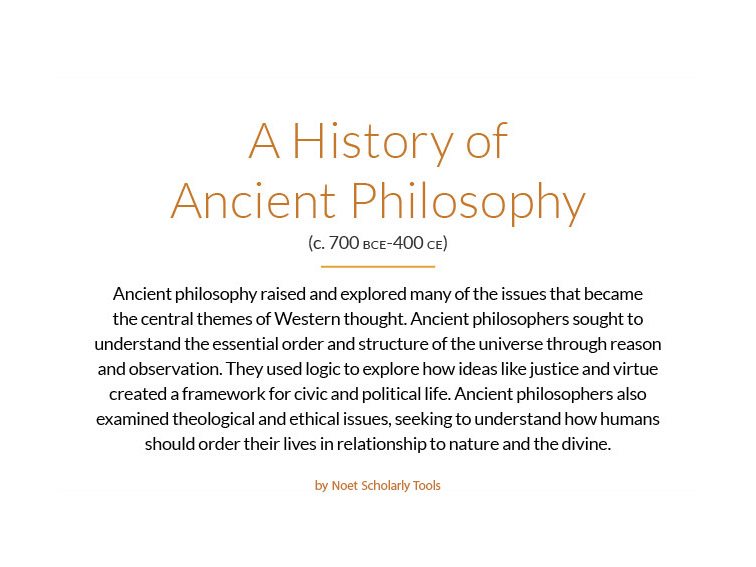Graphic: A History Of Ancient Philosophy
by Noet Scholarly Tools
This post is offered by Noet Scholarly Tools who are offering TeachThought readers 20% off their entire order at Noet.com with coupon code TEACHTHOUGHT (enter the coupon code after you’ve signed in). They asked us to share their latest teaching resource on ancient philosophy to help inspire students to explore classic works and dig into the foundations of Western thought. Start your study with their introduction packages on Greek and Latin classics (and don’t forget to take 20% off!).
We recently partnered with TeachThought on on guide for questioning in the classroom, and it is in that spirit of inquiry, epistemology, and critical thinking that we are sharing an infographic on the history of philosophy. Ancient philosophy raised and explored many of the issues that became the central themes of Western thought. Ancient philosophers sought to understand the essential order of the universe through reason and observation. They used logic to explore how ideas like justice and virtue created a framework for civic and political life. Ancient philosophers also examined theological and ethical issues, seeking to understand how humans should order their lives in relationship to nature and the divine.
Below we’ve itemized 13 thinkers who, quite literally, changed thinking as we know it. We arranged them chronologically, and gathered them on the graphic below, along with other tidbits that characterize each philosopher.
13 Classical Thinkers Who Changed Thinking
Pre-Socratics (585-480 BCE)
1. Thales of Miletus
2. Pythagoras
3. Protagoras
Classical Period (479-322 BCE)
4. Socrates
5. Plato
6. Aristotle
Hellenistic Period (323-31 BCE)
7. Epicurus
8. Zeno of Citium
Roman Era (30 BCE 529 CE)
9. Philo of Alexandria
10. Marcus Aurelius
12. Plotinus
13. Hypatia of Alexandria


